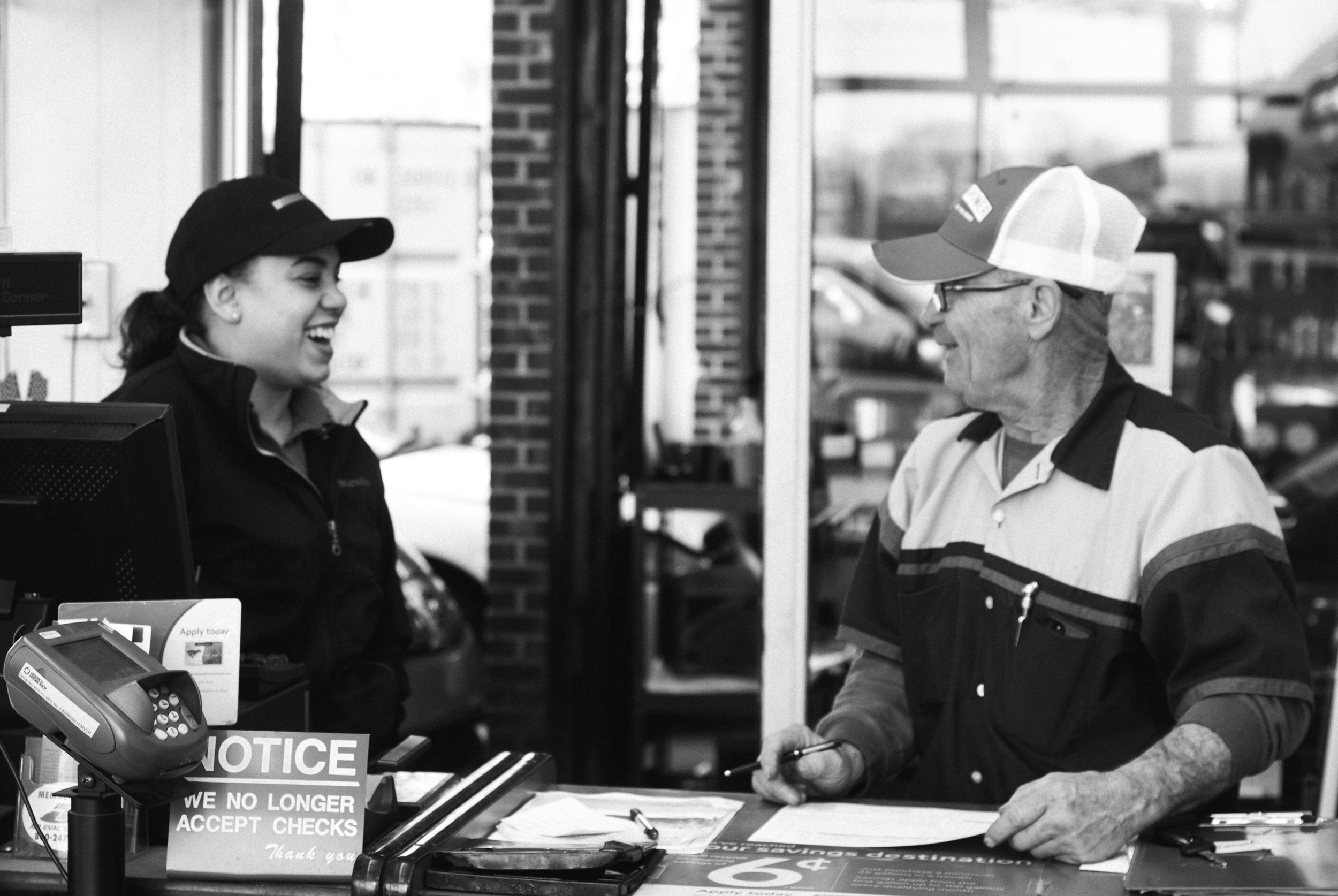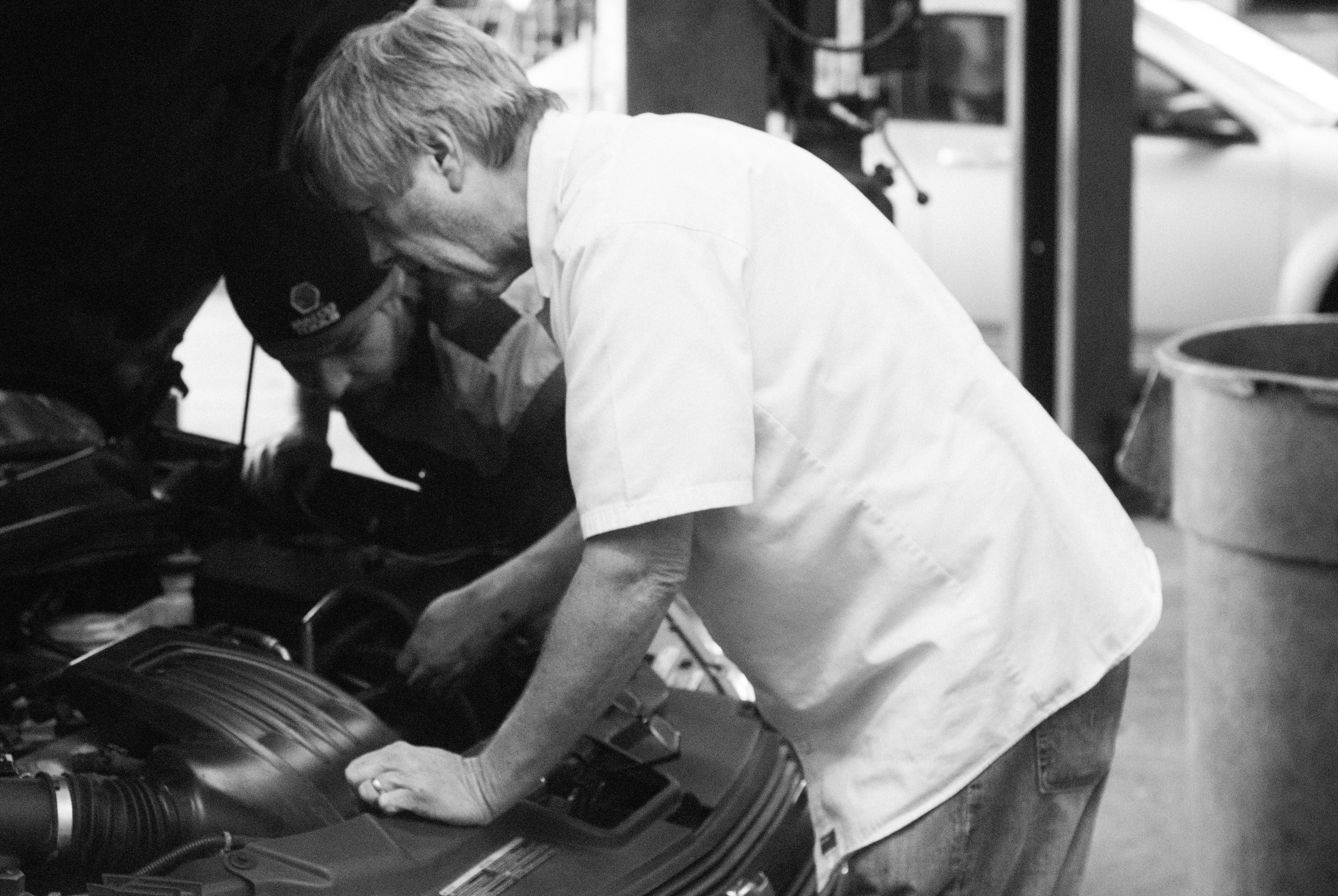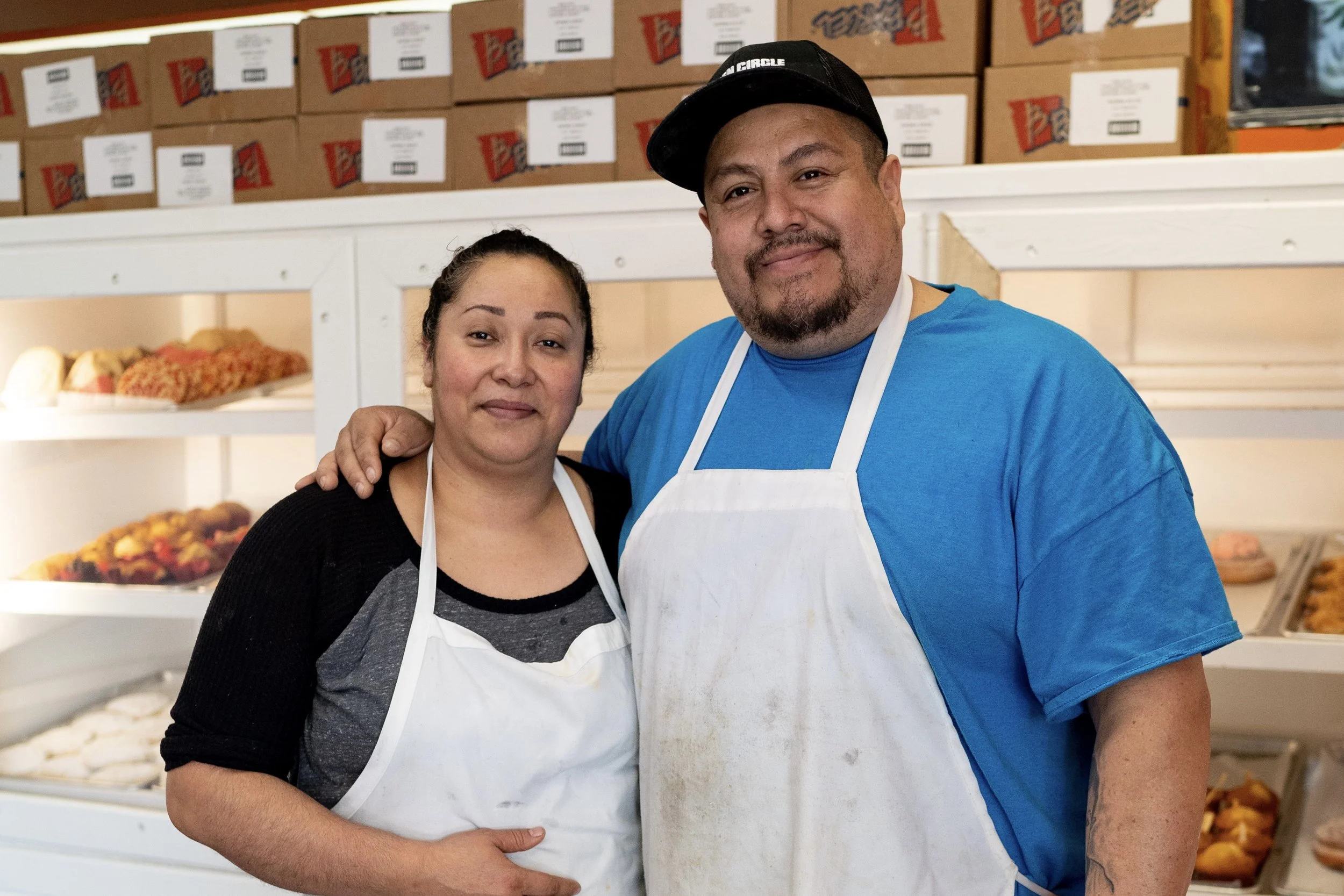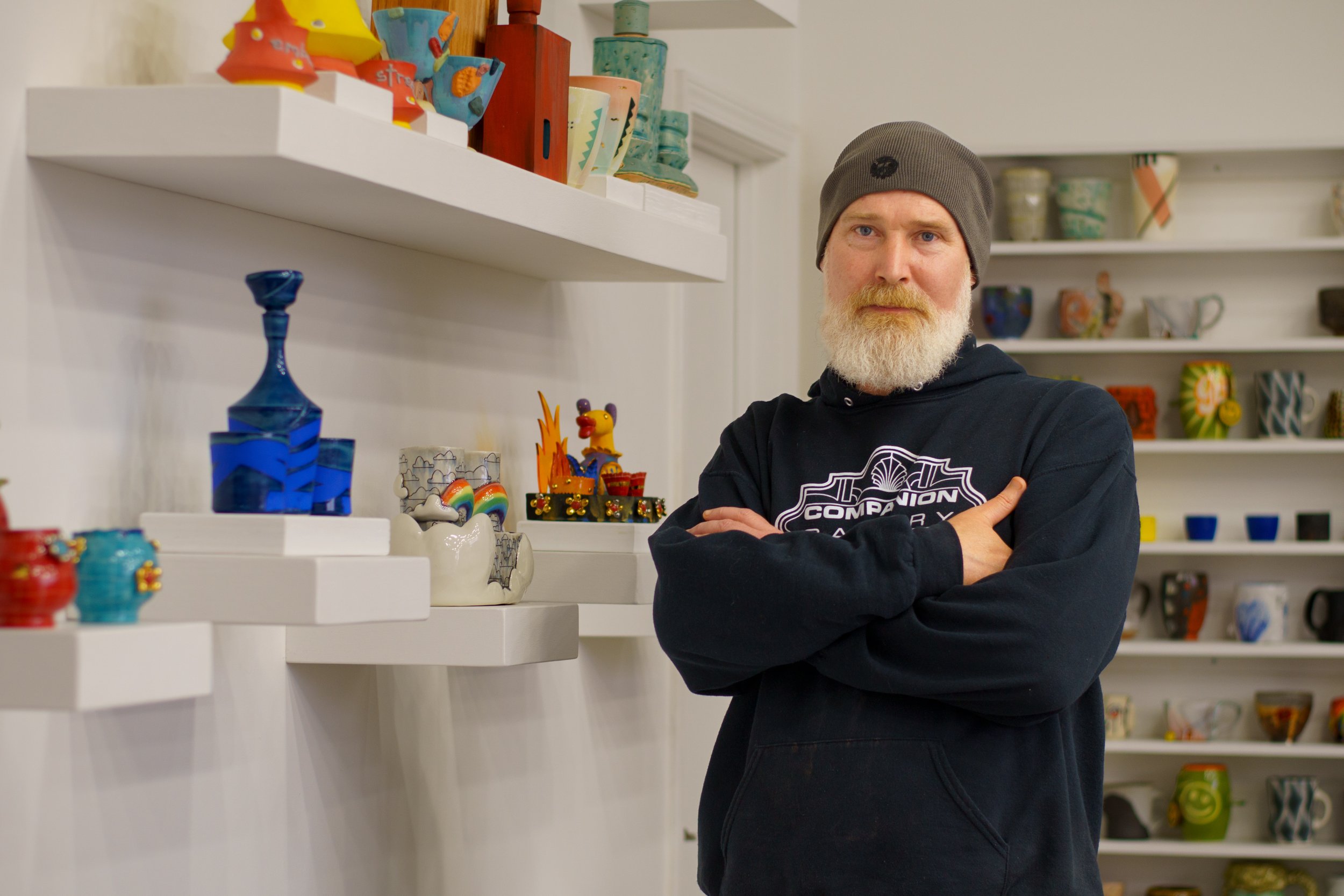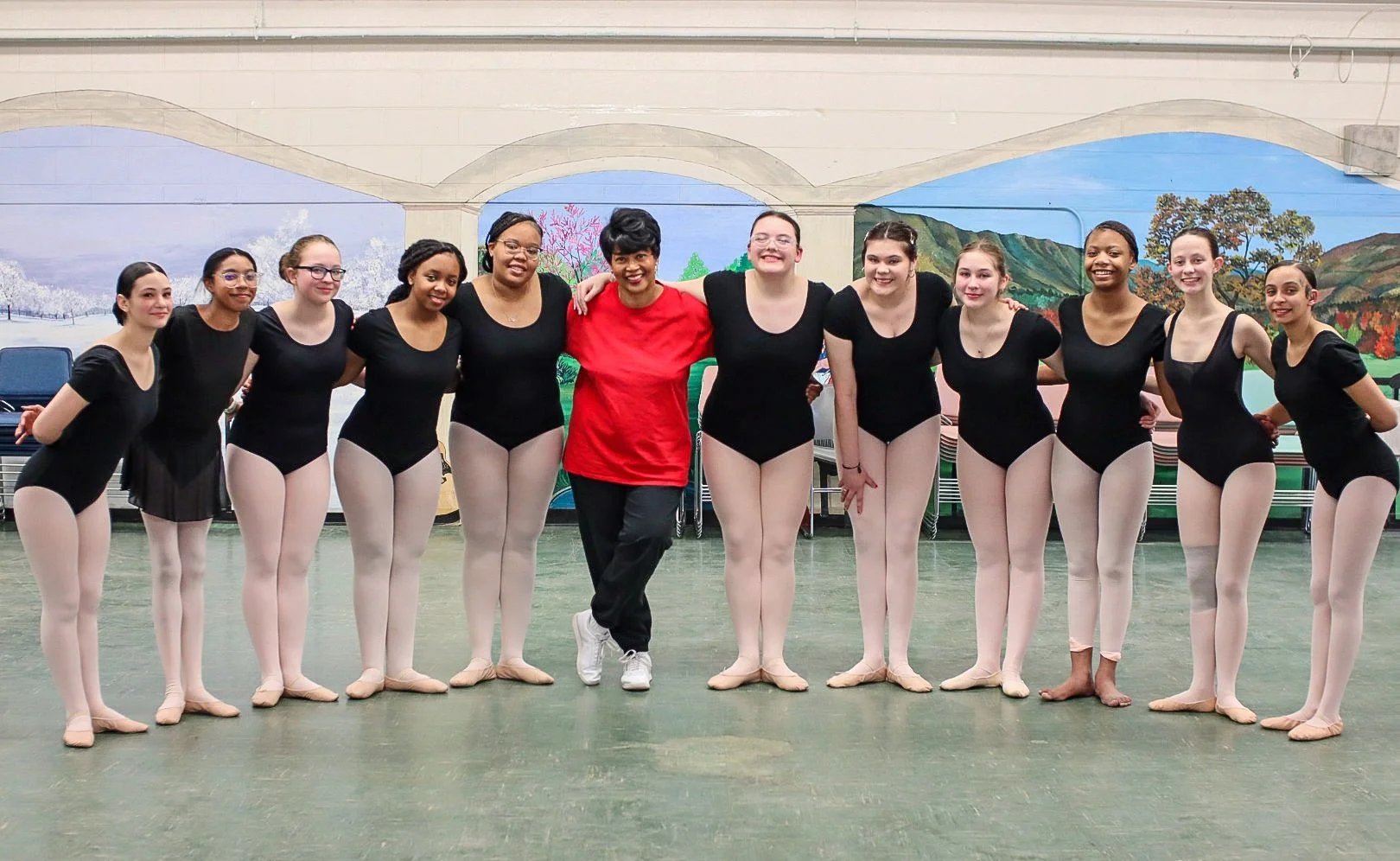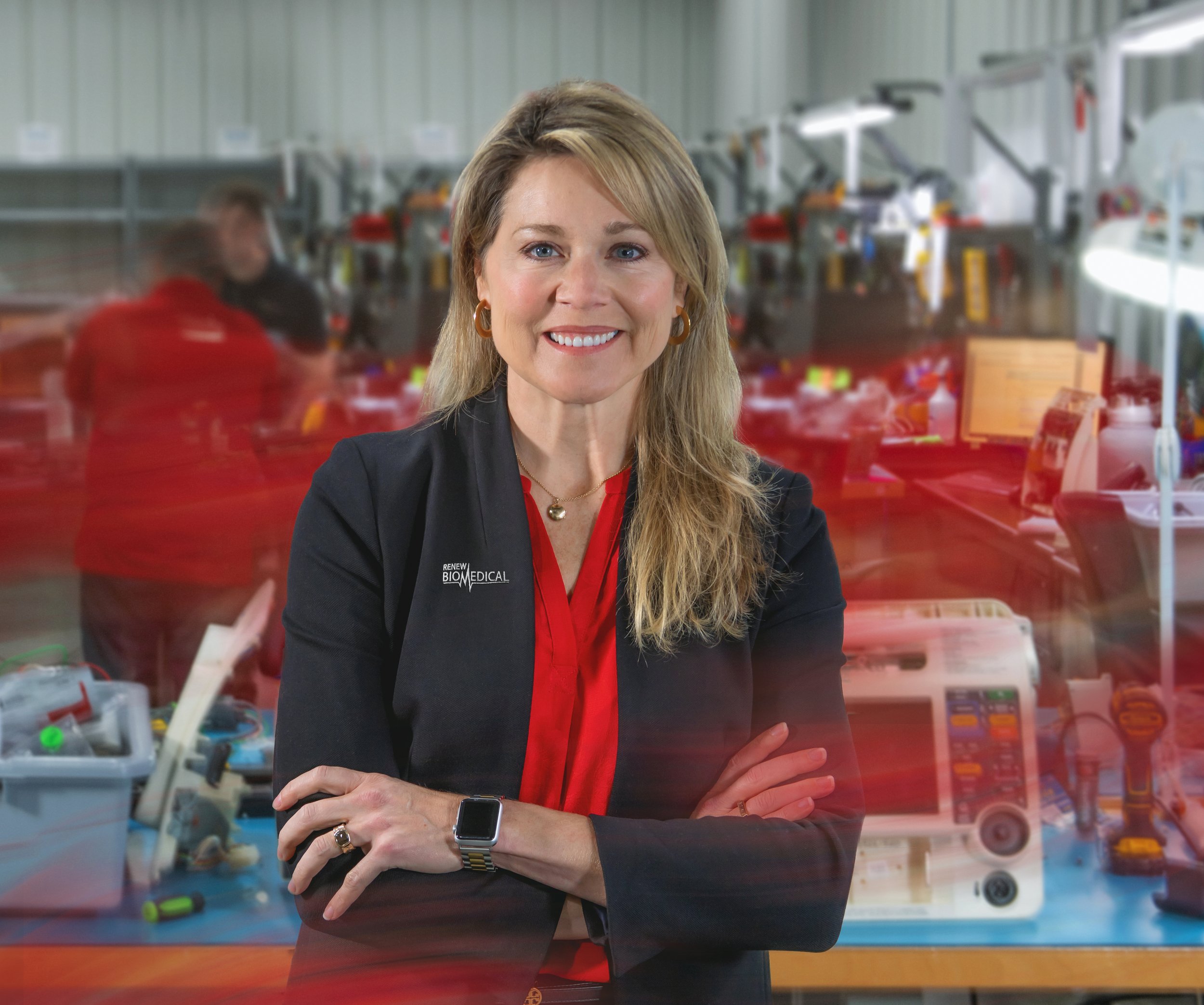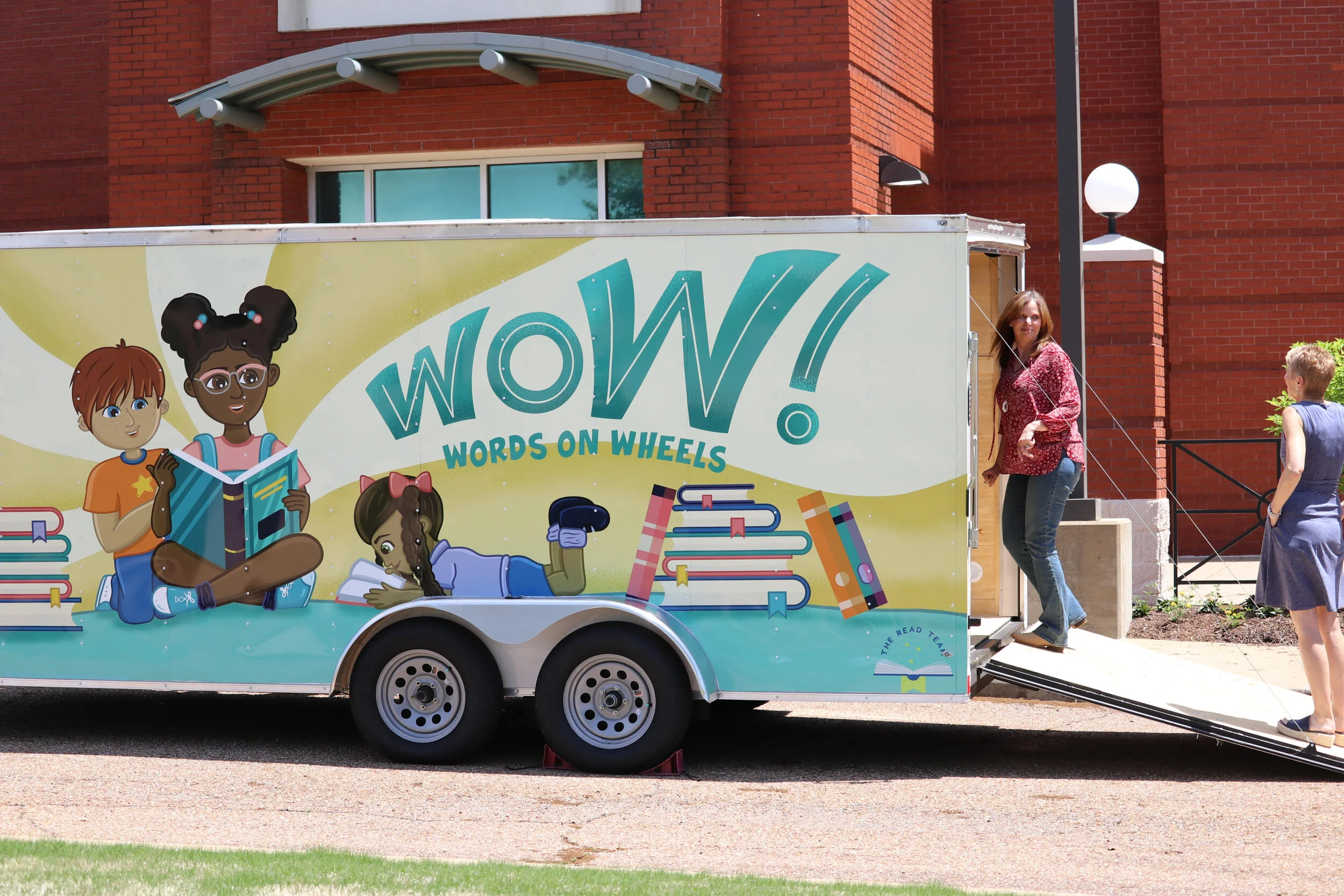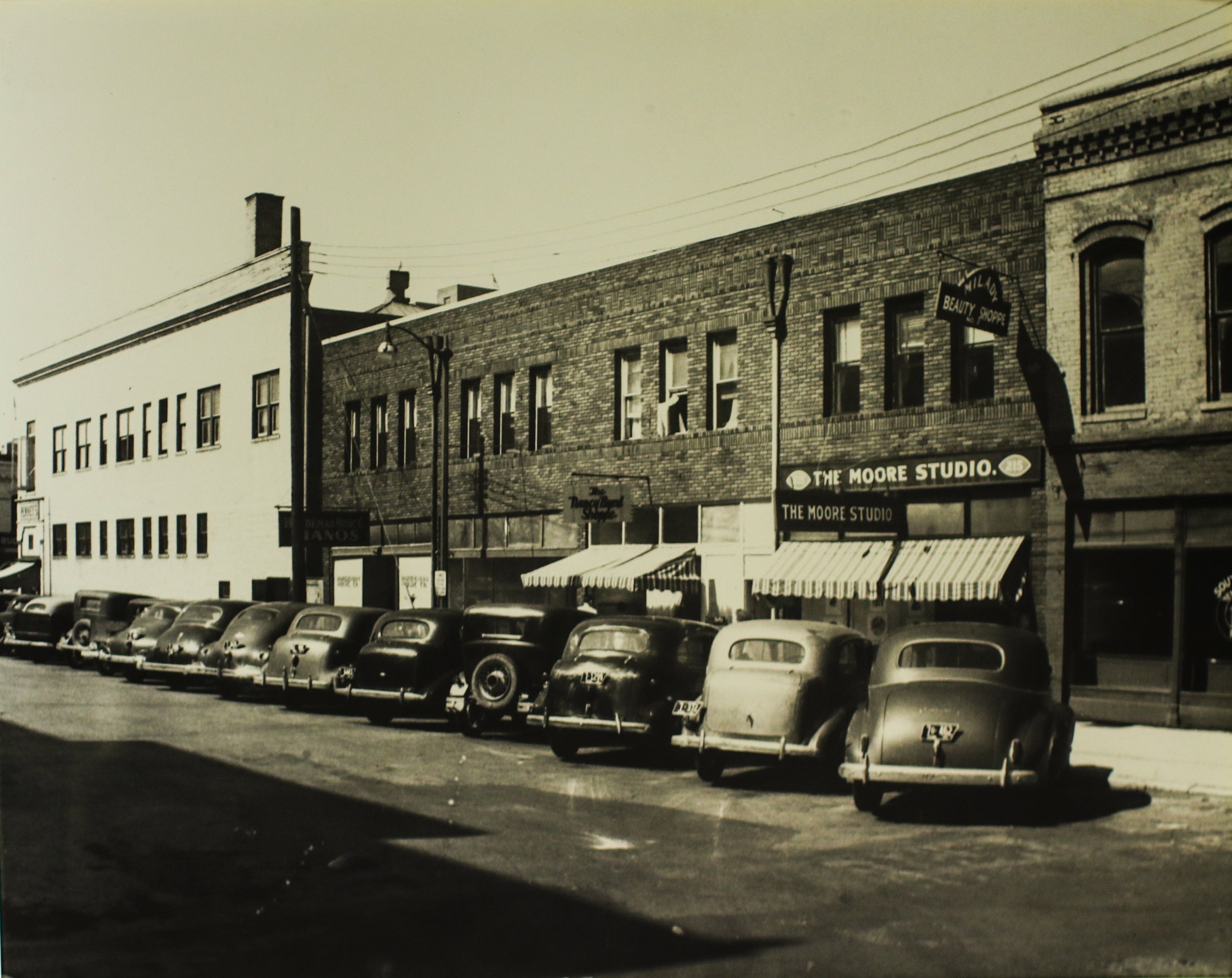At Your Service
This piece was originally published in the April - July 2017 issue of Our Jackson Home: The Journal.
On Sunday afternoons when I was young, my grandparents and I would drive south from church on the 45 Bypass and inevitably come to a stop at the red light at the bottom of the Hollywood Drive exit ramp. I would be in the backseat of my grandfather’s Oldsmobile Cutlass Supreme. I could barely see out of the window, but my eyes would always be drawn to a sticker on the light pole next to the intersection. On the sticker was the head of the Atlanta Braves mascot from the early 1980s: Chief Nok-A-Homa. I would notice that sticker because my grandparents always seemed to have the Atlanta Braves game on television. Every time we would stop at the red light, I would check to make sure it was still attached. It always was. Year after year, decade after decade, the sticker remained. Over thirty years after the first time I saw it, Chief Nok-A-Homa and his sticker endure in what seems like their own time warp at the corner of Hollywood Drive and the 45 Bypass. Time flows past them with no desire to carry them downstream.
If you turn left at the light and leave the Chief and his sticker to continually defy the current, there’s a gas station on down the road. This gas station isn’t ordinary, though. In fact, it’s the only full-service gas station left in Jackson. It, too, has been ignored by time’s pull, but there’s a reason for that.
“If I have to get out of the service business the way we do it, I’ll get out of the business, period.”
Ken Lilly purchased the Poplar Corner Exxon from Bill Dudley in 1999. But even before the purchase, Poplar Corner was a full-service gas station, and that’s something that Lilly never thought about changing.
“Gas stations today have gotten so far from the service aspect of the business,” Lilly said. “Everybody now wants convenience . . . get in, get out, get what you need. We see our regulars every week. We personally know probably 90% of our customers.”
Thirty years ago, full-service gas stations weren’t quite the anomaly they are today. I remember my mother using this same gas station because she didn’t know how to pump her own gas. We would pull up to the full-service island, the bell would ding, and someone would come out, pump our gas, and wash our windshield. My mom would tip him a couple of dollars, and we’d pull back onto Hollywood without ever having to leave the vehicle. This is what Mr. Lilly has fought hard to maintain. While every other service station has turned to convenience, Mr. Lilly never succumbed to that temptation.
“My motto has always been: ‘As long as I’m alive, we will never be a convenience store.’ If I have to get out of the service business the way we do it, I’ll get out of the business, period.”
The evolution of service stations to convenience stores has accelerated greatly in the last twenty years. “Self-service” signs masquerade as an oxymoronic deceit that service actually exists at that respective place. The first of these stores showed up in Jackson around 1998. The iridescent lighting made it look like a paradise with endless rows of snacks and drinks and hot plate lunches. All the while, the human connection disappeared. Money was being made, communication was being sacrificed, and more of these “service” stations were being built. This is in stark contrast to Mr. Lilly’s philosophy. He makes coffee for his customers at no charge. In fact, there’s a group of men who meet every morning to have a cup and try to solve the problems of the world.
There’s an old philosophy that time is actually a flat circle. The idea is that we just sort of repeat things over and over. The things we leave behind, we eventually find our way back to again. Mr. Lilly and his full-service gas station seem to be proof of that today. What was once common years ago is now a novelty. And if anything is true in 2017, it’s that we want what we used to have.
The first thing you’ll notice as you walk into the Poplar Corner Exxon is that there’s, well, not much to notice. There are a few magazines, a coffee pot, a couple of chairs, and a table. There’s a Coke machine in the corner if you want a cold, canned soda. This is by design, not necessity. Mr. Lilly has boldly stuck to his vision of what a service station truly is.
“I’ve never had a ‘convenience’ store. We’ve never sold cigarettes. We’ve never sold beer. We’ve never sold lottery tickets. All we’ve ever had was a Coke machine. You either get gasoline, car repair, or a Coke.” As Mr. Lilly finished that thought, my mind was drawn to the constant push and pull of tradition versus change. There are people who want progress, and sacrificing tradition is a means to an end. On the other hand, there are people who simply are afraid to change. Their security is found in doing the same thing the same way even if results can stunt them. Mr. Lilly’s tradition, however, is just the opposite. It passes beyond the plane of stubborn ideals and into a personal philosophy that centers on connections with people and the idea that service is what sells, not product.
“People come through here to get gas like clockwork,” Lilly explained. “The little old ladies at the first of the month get their gas topped off and their tires checked. It’s just part of their routine. We wash the windshields, check under the hood, check the tires. Any concern they’ve got or anything we notice, we’ll point out.”
It’s this sense of routine and security that only a full-service gas station can provide. When those “little old ladies” get their gas topped off, the doctor from the hospital who doesn’t want to smell like gasoline when he goes back to surgery stops by, or the lawyer who’s worried about residue on his suit needs gas, they all feel that security. They know that they will be served. Autonomy is constantly celebrated in our culture, but service is the underlying fabric that connects us. Convenience is easy. It doesn’t take thought. Service is intimate and sacrificial.
“Convenience is easy. It doesn’t take thought. Service is intimate and sacrificial.”
That service is personified in the workers employed by Mr. Lilly. If you ever happen to stop at the full-service island on Hollywood, you’ll most likely be greeted by a smiling man named Tommy. He’s worked for Mr. Lilly ever since Mr. Lilly took over the business in 1999. When Mr. Lilly started talking about Tommy, his voice picked up with excitement.
“Tommy’s a fixture here. He’s been here since I’ve been here. If he’s stepped away from the register or the pump and people pull up, they’ll say, ‘Where’s Tommy?!’ Tommy’s who they’re looking for when they pull up. They love seeing him. And he loves it, too. You gotta meet Tommy!”
I have met Tommy, and you probably have, as well, if you’ve ever stopped there. Tommy fills my propane tank for me when it’s low, and he’s the one who greeted me every time I stopped by in preparation for writing this article. There has never been a time that I’ve stopped by that Tommy hasn’t welcomed me. He might possibly be the personification of the idea of a full-service gas station. He was made for this role.
Along with Tommy, Mr. Lilly employs four other full-time service technicians. They provide oil changes, diagnostic checks, air conditioning service, tire patches, and just about anything else you could need for your vehicle. Mr. Lilly knows his customers so well, in fact, that it’s not uncommon for him to get a call on his cell phone during off-hours from a regular customer saying they need some help with their vehicle. And because Mr. Lilly values the service he provides, he kindly obliges them. These are the connections born from years of serving people.
Ken Lilly knows there will come a day when he’s no longer able to manage and own a full-service gas station. He says he doesn’t think about it, and I believe him. But time has a way of pressing itself on us so that we eventually take notice.
“I’d like to do this for twenty more years. I don’t really think about it, but that’s a number that sounds good to me. I know I won’t have any say in it, but whoever takes this place over after I leave, I want them to keep it a full-service station. I think it would be easier for them to do it that way. It’s something I’d like for them to carry on.”
Before Mr. Lilly owned Poplar Corner Exxon, it was simply known as “Dudley’s” to me. I remember my dad saying he was going to get gas at “Dudley’s,” or when my mom complained about being low on fuel, he’d tell her to “take it down to Dudley’s.” It took me a few years to realize what he was talking about. Now I know that not only was Dudley’s a full-service gas station, it was a tradition that was passed to Poplar Corner Exxon and one that Mr. Lilly hopes will continue after him.
Regardless of our intentions and desires, time consistently keeps its pace. There may come a day when I’ll stop at the bottom of the Hollywood exit ramp and that sticker will have started to peel away. Maybe there will be no trace of it. Time will have won, as it always does. Maybe I’ll turn left at that light, following the rote pattern in my brain, and see an addition to the gas station that offers fountain sodas and chips and hot lunches, and every sign might say “self-service.” That day might come, but let us all hope that it doesn’t. Let’s not hope that because we value tradition but because we value connection. Progress is a beautiful thing as long as it doesn’t sacrifice communal relationships.
In many ways, Mr. Lilly has managed to shield his business from that ever-pressing current of time. Originality prevails for the moment. Mr. Lilly and his station offer our community a chance to be served and a chance to connect as he provides a service based on trust and routine. He offers us a chance to step back in time and catch our breath, even if it’s only for a few minutes while someone pumps our gas and washes our windshield.
The Poplar Corner Exxon is located at 1450 Hollywood Drive in Jackson and is open 6:00 A.M. to 10:00 P.M. seven days a week. To learn more, call them at 731.424.2235.
Gabe Hart is an English and Language Arts teacher at Northeast Middle School. He was born and raised in Jackson, graduating from Jackson Central-Merry in 1997 and Union University in 2001. Gabe enjoys spending time and traveling with his daughter, Jordan, who is eight years old. His hobbies include reading, writing, and playing sports . . . even though he’s getting too old for the last one. Gabe lives in Midtown Jackson and has a desire to see all of Jackson grow together.
Photographer Courtney Searcy likes to design things, take pictures, and write words that tell good stories about their community. Jackson became home after she graduated from Union University in 2014, where she studied Graphic Design and Journalism. She currently works as marketing manager at TLM Associates while continuing to make paper goods on the side via her business Fine Company. She thinks the best things in life are porch swings, brunch, art, music, and friends to share it all with.

